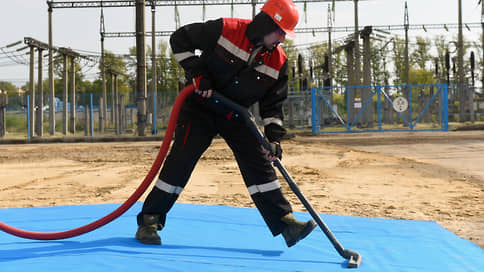The Ministry of Energy proposes to reduce fines for refusal to modernize thermal power plants
[ad_1]

The Ministry of Energy agreed to reduce fines for generating companies that wished to abandon thermal power plant modernization projects due to a doubling of equipment prices. Generating companies will only have to pay up to 45% of the prescribed fine. Energy workers want to abandon the modernization of 13 facilities totaling 1.5 GW. The reduced fine for them, according to preliminary estimates, could amount to 5 billion rubles. Industrial electricity consumers do not support relaxations, calling on generating companies to “take full responsibility for their business and insure risks.”
The Ministry of Energy, following complaints from power engineers about a sharp rise in prices for generating equipment, proposed reducing fines for abandoning a number of projects to modernize old thermal power plants. This was stated by Deputy Minister Pavel Snikkars on the sidelines of the Market Council conference (energy market regulator). We are talking about 13 projects with a total capacity of 1.5 GW, which, according to energy experts, have become unprofitable. “There is a direct penalty under the contract, there is a shortfall in revenue from the sale at the KOM price (competitive power take-off.— “Kommersant”) due to modernization, we collectively calculated this amount,” said Mr. Snikkars. “Each company will pay approximately 35–45% of this amount.” The companies, he said, agreed with the ministry’s proposal.
Under the program for modernizing old thermal power plants, investment projects for 26 GW have been selected with launch in 2022–2027. The projects pay for themselves through increased payments from consumers for power. Generating companies, according to Kommersant estimates, have already launched 20 projects totaling 4.5 GW. But at the same time, they postponed the launch of 55 projects for 12.4 GW with a total CAPEX of 158.3 billion rubles.
In the spring, generating companies asked the Ministry of Energy to completely exempt them from fines for abandoning modernization projects, but the idea was rejected. The head of the Market Council, Maxim Bystrov, told Kommersant on the sidelines of the conference that resolving the current “abnormal situation requires targeted, extraordinary measures.” He explained that discussions are still ongoing, “the position of buyers must be heard and taken into account, without it consensus is impossible.”
The procedure for abandoning projects is not yet known. Various options were considered, including making a decision on the amount of the fine at the level of the agreement on joining the trading system of the wholesale energy market. In this case, the decision will be common to everyone, and for each object there will be no need to bring the issue to the supervisory board of the Market Council. The possibility of re-participation in the program of generation facilities that have withdrawn from it, as well as increasing the responsibility of investors, will also still be discussed.
The Council of Energy Producers (CPE; lobby of generating companies) confirmed that after a series of negotiations with the Ministry of Energy, the Market Council and the System Operator (power system manager), they agreed that in case of refusal of the modernization project, each company would pay up to 45 % direct penalty under the contract.
An agreement was recorded on the refusal of five companies from 13 projects for 1.5 GW, that is, only 5% of the total selection volume; this will not harm the reliability of the energy system, the POC clarified. According to the industry publication Peretok, the Siberian Generating Company (part of SUEK), TGK-2, Quadra (part of Rosatom) and EL5-Energo would like to abandon modernization projects with commissioning in 2025–2026. (controlled by PJSC LUKOIL, former Enel Russia). The companies did not provide comments to Kommersant.
The PEA explained to Kommersant that for many items of genetic equipment a more than twofold increase in prices was recorded. The CAPEX of these projects approved at the competitions was 27.3 billion rubles, and their real price in April was estimated at 48.9 billion rubles. In the spring of this year, the POC assessed the potential fine for these projects at 11.8 billion rubles. (see “Kommersant” dated April 21). Thus, the initiative of the Ministry of Energy can reduce payments to generating companies for 13 projects to 5.3 billion rubles.
Businesses criticize the possibility of reducing fines for abandoning a number of projects.
“The constant shifting of suppliers’ business risks onto regulators and consumers is a vicious practice that teaches suppliers nothing and overloads the economy,” the Energy Consumers Community (a lobby for industrial electricity consumers) told Kommersant. “The issue of reducing fines would not have arisen if generators would not delay purchasing equipment and save on hedging risks.” According to the community, fines should not be reduced.
The Ministry of Energy’s proposal looks like a compromise, says Sergei Sasim, director of the Center for Electric Power Research at the Higher School of Economics. Since the reduction in the original fine was more than 50%, the influence of external factors was probably considered decisive, he believes. According to the analyst, even such a compromise solution seems controversial, because the price of power is formed on the basis of profitability, determined including taking into account risk, and risk implies the possibility of losses. “The precedent of generating companies refusing obligations with such a significant reduction in consequences does not increase confidence in the market,” says Mr. Sasim. “Especially if the fine paid can subsequently be compensated through an increase in the cost of projects in future selections.”
[ad_2]
Source link





